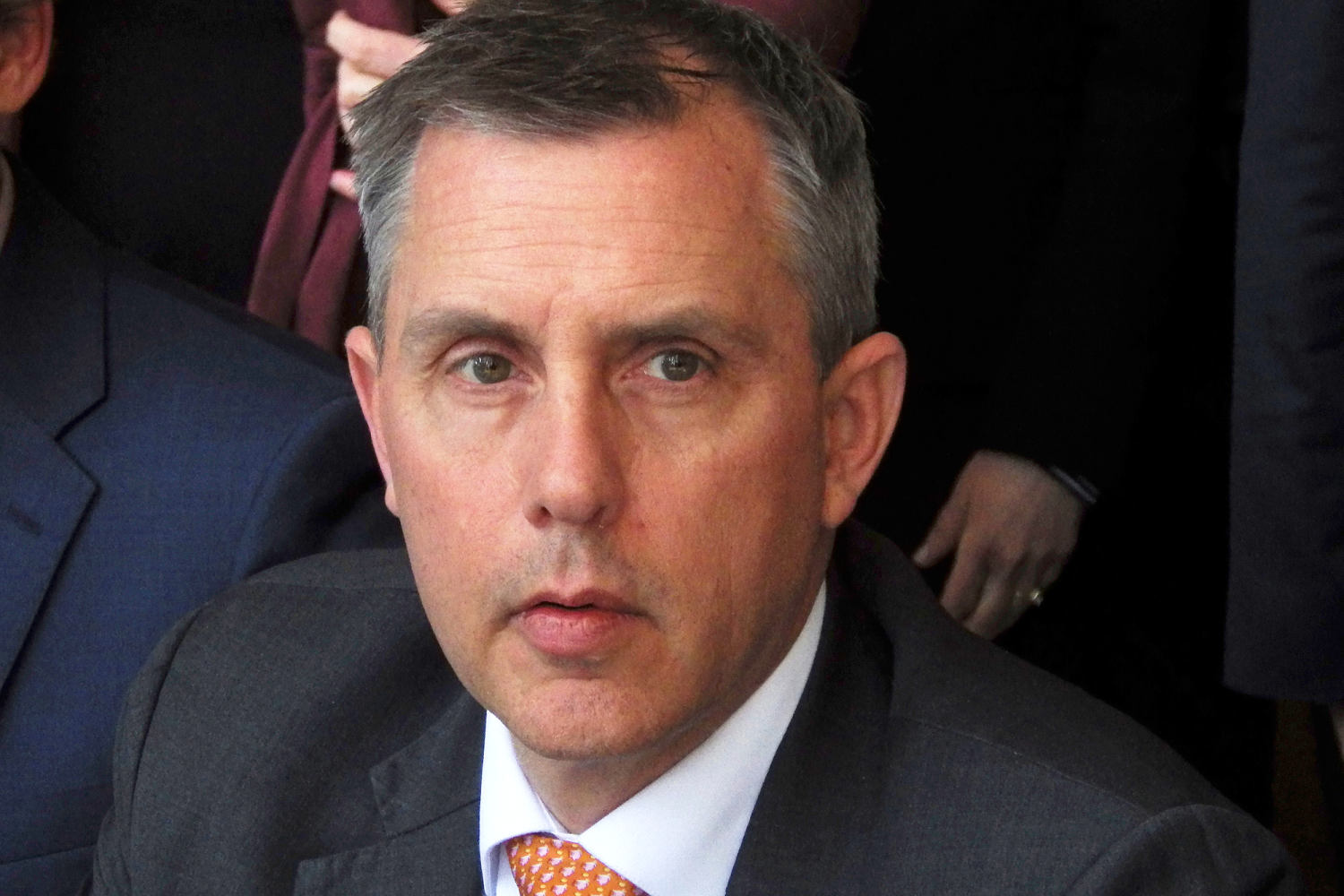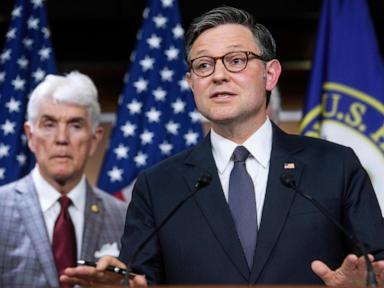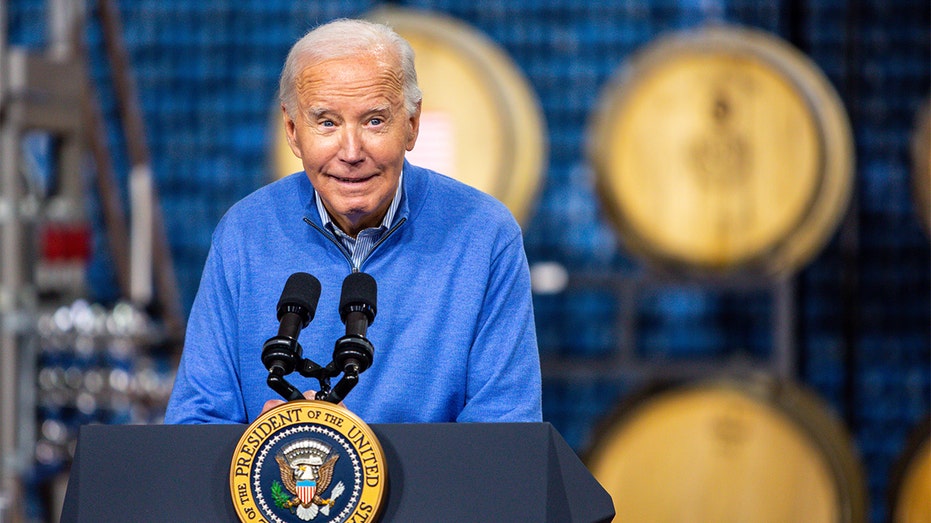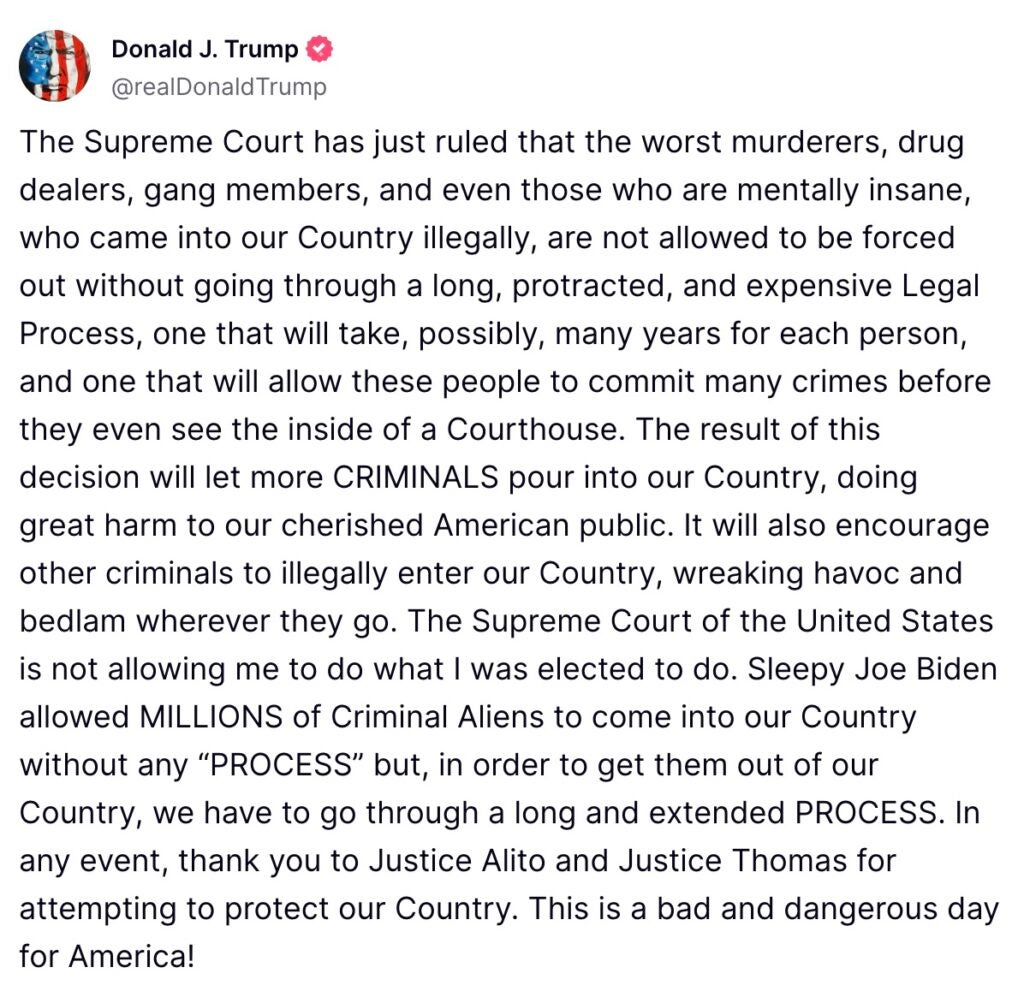The MAGA movement’s top economic guru is not happy about the GOP’s “big, beautiful” domestic policy bill passed by the House early Thursday.
“I liken it to a death march through a series of choices that nobody really wanted to be making,” said Oren Cass, the chief economist of the right-leaning think tank American Compass and a leading proponent of conservative economic populism among allies of Donald Trump.
In an interview with POLITICO Magazine, Cass said there are a handful provisions in the bill that appeal to those trying to move away from Republican economic orthodoxy. But on the whole, he said, the bill is a messy hodge-podge of conventional conservative priorities that won’t do much to help Trump’s working-class constituencies or the broader public. The centerpiece of the legislation is an extension of the 2017 Trump tax cuts, and it will significantly increase the federal deficit even as it includes deep cuts to Medicaid and food stamp programs for low-income Americans.
“[It’s] not something that has an especially coherent logic to it or much prospect of actually accomplishing the things that I think people want,” Cass said.
But despite his disappointment with the bill, Cass defended the notion that, in general, the GOP’s economic agenda is coming to reflect the interests of the party’s increasingly working-class base — even if that transformation is not happening as quickly as Cass would like on Capitol Hill.
“I think the trajectory is the important thing,” he said.
This conversation has been edited for length and clarity.
The House bill looks to me like a pretty conventional Republican economic wish list. Am I wrong?
I think “conventional” might be a little generous, insofar as a conventional Republican tax package actually starts from a motivating economic idea that people are excited about. This one just seems to be — I liken it to a death march through a series of choices that nobody really wanted to be making. Nobody really has a case for it, and it’s not clear why it’s happening. I guess that might be the best that can be said for it.
To the extent there is an animating ideology behind the bill, what do you think it is?
It seems to be that they passed the tax cut in 2017 and it was expiring, and therefore it must be extended. But obviously, there wasn’t even especially robust support for that. It’s striking the extent to which we’re not actually hearing a coherent case for why this is something the economy needs, or what relationship it actually has to some important priority or to boosting growth or anything else.
If there’s an interesting shift, it’s that whereas in the past you would have just said, “Well, this thing pays for itself,” this time there’s a recognition that it does not pay for itself — and we have a fiscal crisis — so we also need to explain how we’re at least partly going to pay for it. But there’s obviously equally little agreement about or enthusiasm for any way to pay for it. I think the process by which they got it over the finish line speaks to how little enthusiasm there is for it and how little coherence it has.
Are there any nuggets that appeal to you as a conservative economic populist?
There are a few things. Within the expiring tax provisions, there were some things that were really important for boosting investment. I think immediate expensing is very important. I think fixing the foolish stuff they did last time around on research and developing expensing is very important. I like to see the Child Tax Credit being expanded, and allocating more resources, relatively speaking, toward people trying to raise families is a very good thing.
But overall, the reality is that we are not going to solve our economic problems if we do not get serious about the fiscal picture and actually reduce the deficit. That’s going to require both reducing spending and raising revenue. If you’re not willing to do that, then I don’t think you can credibly say you’re addressing our economic problems.
You’re among the conservatives arguing that the GOP is becoming the party of the working class, representing this multiracial working-class coalition. Does the bill make you rethink that trajectory at all?
No — I think the trajectory is the important thing. Remember what the discussion looked like last time Donald Trump was elected president and came into office with majorities in Congress, and contrast that to what this discussion looks like. Things have obviously changed a great deal. There’s much less confidence in the 1980-style, supply-side tax cutting, much more concern about cutting safety-net programs and more enthusiasm for family policy and directing resources toward families. All of those things are moving in the right direction.
On the flip side, the reality is that you have an expiring set of provisions that this set of people by and large voted for the first time around, and you obviously have a president who put a very high priority on extending them.
Isn’t it hard to say you’re becoming the party of the working class when Republicans in Congress are doing things like SNAP cuts, Medicaid cuts and tax provisions that will contribute to the massive upward redistribution of wealth? Doesn’t that make the political argument more difficult?
I don’t think it makes the political argument more difficult in terms of the trajectory. The arguments that are being made and the steps they’re taking are different, and the set of people who are speaking in opposition to a lot of it is obviously a lot more prominent than it used to be.
I think it’s a really interesting thought exercise to ask, “If there weren’t this expiring tax cut sitting here for year one of the second Trump administration, is this what would be at the top of the list?” Based on how people are approaching it, the answer is pretty obviously no. Whereas in 2001, with George W. Bush coming in, this was the absolute priority, and with Trump coming into his first term with Paul Ryan sitting there in the speaker’s office, this was what everybody was excited to do. I don’t think “Let’s do a big tax cut” is what would be central to the agenda absent the fact that you had the last big tax cut set to expire right in the middle of this.
To your point about the political argument, certainly these folks in office would be making their lives a lot easier for themselves if they were attending more to the actual political preferences of their constituents and the country, which are not reflected in the bill.
Why is that happening? Why are the preferences of the voters not being represented in the bill?
I think there are a few things. One is that you have the agenda being pushed by the White House and the things that the White House is saying they want to focus on. Another is that in general, elected officials are kind of a lagging indicator for what is happening in American politics and in an ideological movement. They are the ones who have been around the longest and built their own brand and preference and network around the things that were in vogue 20 and 30 years ago. Those folks are still the ones chairing various committees, and they have obviously committed to doing things a particular way. Broadly speaking, that’s why these kinds of shifts always take a long time. You don’t just have everybody wake up and say suddenly, “Well, I guess I was doing everything wrong.”
But Trump seems to have an outsized amount of sway in these negotiations. Obviously, he’s not able to unilaterally push things through, but why do you think he’s not able to move the needle in a more populist economic direction? Is he just not that invested in the economic populism and is too friendly to corporate interests, or is he not able to or willing to stand up to the anti-tax crowd?
Trump has always had a somewhat ambivalent attitude toward a lot of the more populist economic thinking. He obviously was very focused on tax cuts the first time around, and he has been very focused on tax cuts again this time. I think it was very interesting to see him go on the record a few times saying he was open to raising taxes on higher-income households, you had [Treasury Secretary Scott] Bessent say the same thing. You even had Trump sort of flatly rejecting the idea that George H.W. Bush had lost his election because he raised taxes.
But at the end of the day, Trump focuses on getting the deal done. One thing they tried was saying, “Hey, if we let taxes at the top snap back or create a new higher bracket, does that help get the deal done?” And when the answer back from the Hill was “No,” they moved on to the next thing. So, what you’re seeing come out of the final package is a product of a lot of frantic efforts from all sides to make deals to prevent the thing from falling apart, but not something that has an especially coherent logic to it or much prospect of actually accomplishing the things that I think people want.
It seems like the economic populists have won the ideological and rhetorical battle within the GOP, but they are not yet winning the political battles on these things. Is it just a matter of waiting for the tides to shift, or is there a change in your political strategy that’s needed to make that happen?
I think there are a lot of different issues across this which is playing out. On trade, obviously, things have already substantively swung massively, and on competition and antitrust issues, things have been completely transformed. On labor issues, you’re seeing the administration and the folks they’re appointing and folks in the Senate shift directions.
What about changing the anti-tax orthodoxy, though? That seems to be substantively intact.
The tax element has always been the final frontier on a lot of these issues, partly because it was the ideological dogma that got most deeply entrenched, and also because as a political matter, taxes are a particularly difficult issue. I mean, you have a Democratic Party that’s running further and further away from being serious about taxes as well. If you think about the sequences of this transformation in the Republican Party, you would always have put taxes as the last one.
In my mind, the fact that the discussion about this renewal has been so dramatically different from what the discussion was the first time around — the fact that people were willing to put tax increases on the table as an element of getting the job done — says to me that things are moving on the tax issue.
The counterargument would be that some of that opposition to this bill came from SALT Republicans, who are not exactly economic populists.
I think that’s right, but the SALT thing is somewhat of a sideshow. Even if you remove them, you have the same problem anyway, which is a bunch of people actually concerned about the deficit, saying, “Wait a minute, you have to pay for some of this.” As soon as you try to put the spending cuts in, you have another group of people saying, “Wait a minute, I’m not voting for a bunch of tax cuts at the top end paired to unpopular spending cuts.” You then try to say, “Okay, well, what if we don’t do the tax cuts at the top end?” And you have a different set of people saying, “Wait, I’m not voting for it if you don’t do the tax cuts at the top end.” And then you’re right back to the beginning.
But the opposition seems to be coming from fiscal hawks, not from people who are objecting strenuously to cuts to SNAP and Medicaid.
Not in the House, but that is where a lot of the objections are in the Senate, even going all the way back to the whole one bill versus two bill debate. We will see where this ends up, but this does not look like 2017. This is a very different party.
Sen. Josh Hawley has publicly drawn a red line of sorts on Medicaid cuts. Would you counsel other Republicans in the Senate to draw red lines on certain tax cuts as well?
Ultimately the red line that needs to be drawn is on the fiscal picture. We’re not going to get the budget under control without making spending cuts, but we’re also not going to get the budget under control while continuing to cut taxes. And by the way, we’re not going to be successful in getting the spending cuts we need if we’re cutting taxes at the same time.
I think the red line should be that no one should be voting for a bill that increases deficits right now. That seems like a very obvious baseline. Which isn’t just to say you have to vote for a bill that’s going to balance the budget in year one — that’s obviously not going to happen — but directionally, you cannot claim to be a fiscal conservative and vote “yes” on something that leaves us with a bigger deficit tomorrow than we already have today.
You called the 2017 tax cuts “an expensive failure.” Is this bill doomed to be the same thing, or is there still time and political energy in the Senate to turn it around?
It’s far too soon to know what the final version is going to look like, but I think the version passed by the House does not have the elements to be successful.
Even as a matter of straightforward economic policy, all it’s doing is extending — in often confusing and temporary ways — the set of existing provisions. The best you could say for it is that it is preventing something bad that would happen if you didn’t extend the tax cuts.
The problem is that it’s very hard to make the case that those bad things will happen. If you go back and look at what happened after the passage of the 2017 tax bill and whether the economy somehow is performing better under those rates, the evidence just is not there, particularly when you look at what’s happening on the deficit side.
Again, I don’t even see anybody out there attempting to make a coherent case for anything positive that the bill is going to achieve. It would be great to hear what they think that is, and I’d be happy to respond to it, but I don’t even see somebody telling a coherent story of what they think they’ve accomplished here, besides moving on past this thing that they didn’t want to have to deal with.
.png)















 English (US)
English (US)